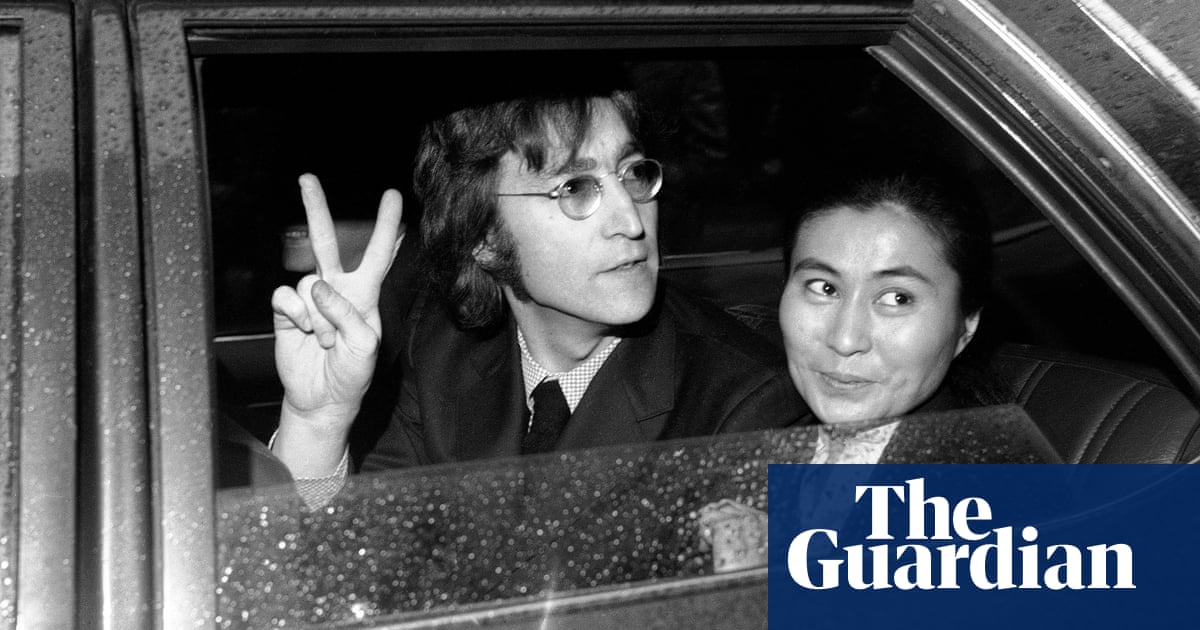From sit-ins for peace to avant-garde happenings and covert surveillance of revolutionary sympathies, the world of John Lennon and Yoko Ono can seem removed from that of our own.
But a new documentary about the couple exposes the eerie similarities between the 70s and now, the Oscar-winning director behind the film has said.
One to One, by Kevin Macdonald, portrays Lennon and Ono’s life over an 18-month period after their move to New York in 1971, when they quickly became figureheads for the counterculture and anti-Vietnam war movements.
Showing at the London film festival, it centres around the 1972 One to One benefit concert at Madison Square Garden – Lennon’s last full-length concert and his only one after the Beatles – performed in aid of children with special needs.
“What I hadn’t realised until I started making this was that the period seems like an incredible echo of today, it’s like a mirror image,” Macdonald said.
His film incorporates newly restored 16mm film footage of the concert, archival news clips – of the Attica prison riot, Richard Nixon, the Vietnam war and the shooting of the Alabama governor George Wallace – as well as previously unheard tapes of Lennon and Ono’s private phone calls, recorded by them when they became concerned the FBI was tapping their communications.
Combined, it acted as a corrective to the idea that there is something uniquely divisive about contemporary politics, Macdonald said.
“There was a lot of stuff about the early environmental movement and ads on TV to stop oil. I thought we were only just having these conversations.
“George Wallace is such a clear Trump precedent, especially with the recent assassination attempts. Vietnam was dividing society in the same way Gaza is today. Shirley Chisholm was the first Black woman running for president. I thought, ‘God, there’s nothing new in American politics,’ it’s like it’s stuck in some cycle.”
Macdonald, who has directed films including One Day in September, Touching the Void, Whitney, The Last King of Scotland, and The Mauritanian, said the realisation was “strangely reassuring”.
“We all think that today’s politics is uniquely terrible, but this shows something different will come. That maybe Trump is not the end of the world.”
He said throughout he wanted to explore the question: “What do you do once you’ve been in the biggest band in the world, and you’re only 30?”
Footage and recordings were provided by Lennon’s family, while Macdonald and his wife Tatiana Macdonald, a set decorator, remade Lennon and Ono’s West Village apartment including their posters, records and the TV at the foot of their bed.
“I heard this interview with John, where he talks about how when he first arrived in America, all he did was watch TV,” the director said. “I thought, ‘That’s a way into this.’ Let’s make the film about them watching TV and learning about America.”
The phone recordings also provide a rare insight into the pair’s thinking at the time. In one, Ono describes what it was like to be blamed for breaking up the Beatles and the racial abuse she was subject to in Britain, including being called “ugly” by the press.
In another, Lennon describes his idea for a US tour that would raise bail money for American prisoners who could not afford the fees, as well as efforts to get Bob Dylan onboard (and persuade the Dylan aggravator AJ Weberman to leave the musician alone).
Macdonald said he was particularly moved by the couple’s activism some years before they became reclusive, and even split up for a while (with John temporarily moving to LA).
There’s a moment in the concert, during the song Come Together, when Lennon shouts: “Stop the war.” During another song he shouts “Vote”, with the 1972 US election looming. Nixon won against the leftwing Democrat George McGovern.
“They campaigned to defeat Nixon. But not only did Nixon win, he received the majority of the votes of young Americans under the age of 25,” Macdonald said. “I think it’s what led to John’s big period of alcoholism and the split. They tried to change things, and it didn’t work. And that’s heartbreaking, obviously.”
But he added that there was something that stood out about Lennon and Ono’s activism compared with the modern celebrity’s: it was done at a grassroots level rather than on Instagram and X.
“People from that time told me their door was just kind of open,” he said. “You would just go in and have tea with them on their bed.”
Lennon was fatally shot in 1980. Has Macdonald thought about what the musician would be like if he were alive today?
“Quite a lot, actually. I think he would stay true to his very simple message of peace. He would have remained on the side of the underdog. But I think he would have also got himself into trouble, because he was always so honest.”
For the director, that is one of the reasons it would “have been so great” having him around today. “Too many celebrities feel the pressure of social media to censor themselves, to say the right thing, to not contradict themselves,” he said.
“But you see in the film that somebody who is actually confident knows that they’re not going to always think the same thing. They learn from their mistakes.”

